#teaching
Explore tagged Tumblr posts
Text
It got brought up at work, so I thought I'd ask about it here too:
English teachers: is there a reason 95% of the books we read in class were all so sad and upsetting? I can remember maybe one book that wasn't depressing. There's gotta be uplifting ones that could be added, right?
Maybe its changed since I was in school, but all I remember is books like The Grapes of Wrath, Where the red fern grows, A child called it, Taroh says beware, Scarlett Letter, On my honor, Gatsby, Cuckoos nest etc...
Some sad/upsetting books are crucial to read, but it felt really unbalanced and negative and I was wondering if there was a reason.
#do we have to cry to learn a lesson?#literature#english teachers#teaching#literature class#famous books
26 notes
·
View notes
Text

on learning teaching.
#can ya’ll tell who my favourite pony is#ik i’ve literally never posted her ever#but she’s my favourite#cheerilee my beloved#mlp#mlp fim#my little pony#mlp g4#mlp art#mlp oc#muzzle mumbles#cheerilee core#cheerilee#cheerilee mlp#teaching
119 notes
·
View notes
Text
Tutorial: How to Draw as a Young Artist
Hi, I have heard that some parents don't believe in artistic nudity, despite A) useful art books traditionally using imagery of unclothed people, (note: I have never seen these books, as I didn't think of it or of going to a library 🤷) and B) the aforementioned strict parenting harms the artistic progression of the youth.
I suggest finding reference.
Urgent
The human body is "perfect" and no 3D modeling software, app for 3D models, Barbie doll, ball-jointed doll, action figure, or anime posing figurine is able to capture it fully and properly.
You learn a little more with every person (or animal, plant, object, or building) you draw.
For references, use...
Anatomy using medical quality, musculoskeletal images
Stock images of people in diving suits, superhero costumes, ballerinas, ice skaters, gymnasts, beachgoers
Sequence photography
Screenshots of moving people from videos
360 degree photography (?) or videos (?)
Modeling digitals (clothed)
For free websites, use...
Adorkastock (clothed, but it's humans who appear to have beachwear)
Pexels
Pixabay
Pinterest, although copyrights may be hidden somewhere in there
Youtube for sports videos
Other
For non-virtual options, use a sketchbook with grid paper, head to the park, and draw random people.
For daily instructions made by me, use...

Please reblog, note, and follow. Drawing is important and artists are struggling to draw better as early as possible.
#artists on tumblr#how to draw#art#illustration#teaching#art reference#reference#tutorial#art tutorial#purity culture#Please be creative and resourceful in order to learn
18 notes
·
View notes
Text
Every day of my professional life amounts to telling teenagers variations on the following:
"Google is not a source of information. Google is a tool for locating sources of information. Google does not know anything. Google can only tell you what somebody else said they know. It is up to you to evaluate the reliability of what Google presents you with."
2K notes
·
View notes
Text




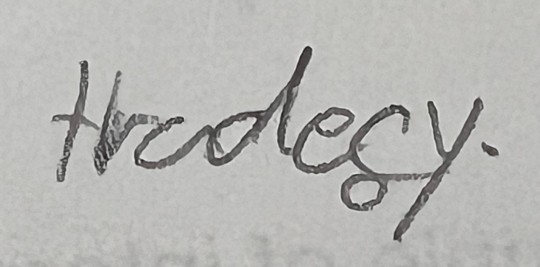
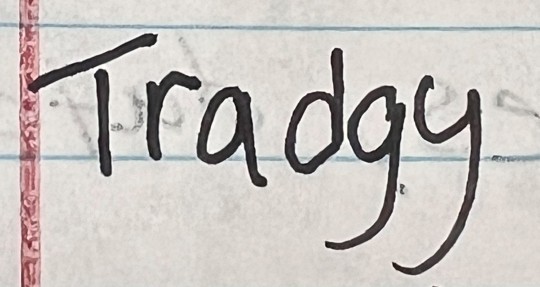
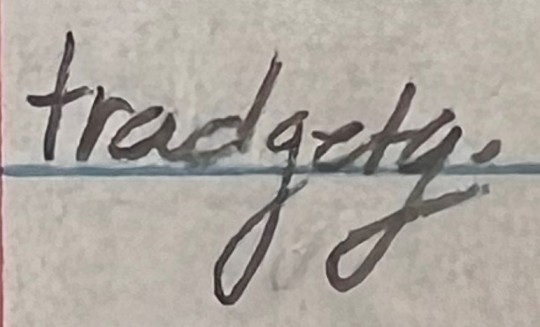
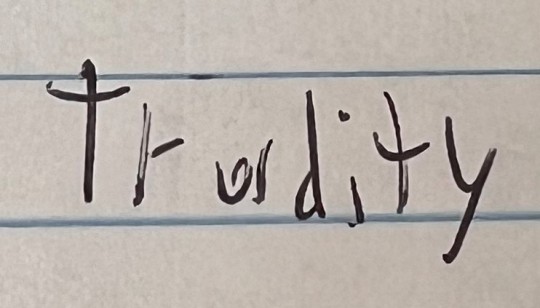
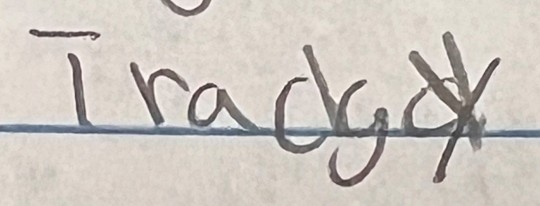
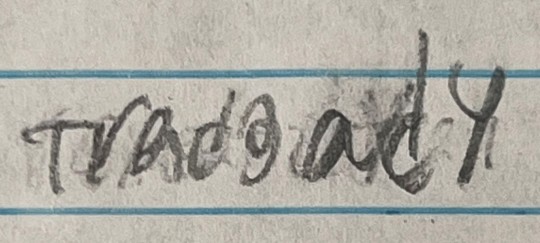





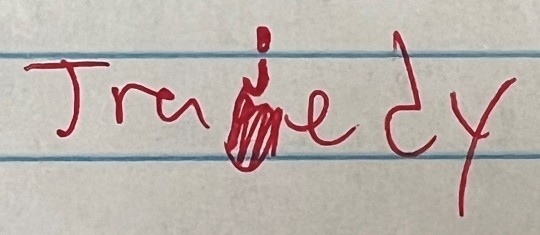




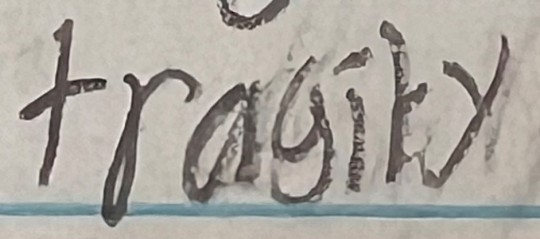
Another year, another group of my delightful ninth graders trying to spell the word "tragedy" for their Romeo and Juliet assignment.
Last year's collection
#i started questioning how to spell it myself#but again... at least they knew the right answer#i love them endlessly#teacherblr#teacher life#teaching#english class#english teacher#grammar#literature#romeo and juliet#shakespeare#william shakespeare#language#tragedy
67K notes
·
View notes
Text





3K notes
·
View notes
Text
Teachers protest education funding cuts
#msnbc#educate#teachers#teaching#teacher#educators#education#education department#linda mcmahon#politics#political#us politics#news#donald trump#president trump#american politics#elon musk#jd vance#law
1K notes
·
View notes
Text
For the purposes of this poll, assume the topic is something that you're good at or well versed in; i.e. you possess the information needed, this is just asking how good you are at conveying that information/skill to another person.
–
We ask your questions anonymously so you don’t have to! Submissions are open on the 1st and 15th of the month.
#polls#incognito polls#anonymous#tumblr polls#tumblr users#questions#polls about school#submitted jan 1#skills#teaching#education
2K notes
·
View notes
Text
📢 Introducing The JSTOR Collective!
We’re thrilled to announce our new Tumblr community: The JSTOR Collective! 🎉
This is a space where faculty, librarians, students, researchers, and lifelong learners can come together to share ideas, spark conversations, and, yes, even post academic memes. 😉
Whether you’re deep in research, looking for study tips, or just want to connect with others passionate about knowledge, this is the place for you.
✨ What you’ll find:
Meaningful discussions and resources
A welcoming, inclusive space for all
Humor, curiosity, and plenty of memes
Join The JSTOR Collective and help us build a vibrant, self-sustaining community that celebrates the joy of learning.
Let’s connect, collaborate, and grow—together. 🌱
1K notes
·
View notes
Text








He taught you well. He did.
#the last of us#tlou#the last of us season 2#joel miller#ellie williams#joel and ellie#pedro pascal#bella ramsey#father and daughter#teaching#he taught you well
688 notes
·
View notes
Text

Hello my dears
I am Bahaa, a Palestinian-Ghazawi photographer
My life consisted of my beautiful, wonderful work with international companies and agencies. In addition, I was working on developing myself and my photography equipment.
Suddenly it was gone and all my dreams, ambitions and equipment in the family’s 5-storey house were destroyed
I was trying to create a project of a lifetime after hard years of continuous work, but before starting it, it was destroyed as well
Now I will tell you about my brother. He is a visual artist and a calligraphy artist, and everything he owned was destroyed
Now I will talk about my mother, the beautiful, generous woman. We owned a kindergarten and she ran it despite her illnesses with diabetes and pulmonary fibrosis. They also burned and destroyed the kindergarten to the point that they did not leave us anything to earn a living from, and now, after the difficulty of the road out of Gaza, we do not know how to travel to treat my mother.
I am asking you to please save the life of an entire family and I hope that you will help me so that we can all travel 🙏🏽
I don't want anything else but to survive the war, death and annihilation that haunt us every second





#school#academia#university#teaching#educhums#grades#teacher#classroom#grammar#studying#gaza genocide#palestinian genocide#stop the genocide#end the genocide#genocidio del pueblo palestino#free gaza#gaza strip#gaza#gazaunderattack#save gaza#news on gaza#war on gaza#stand with gaza#gazaunderfire#palestine#book photography#photography#photoshoot#photooftheday#photoshop
2K notes
·
View notes
Text


April 5th, 2025
418 notes
·
View notes
Text




🧑🎓 Alumni I taught at Ballhead Music Institute.
#doc scratch#homestuck#discoholic#dj#teacher#professor#teaching#piano#object head#musicians on tumblr#artists on tumblr#cartoon#drawing#rate my professor#pianist#vocalist#rmp#art#illustration#ballhead music institute#dj subatomic supernova#widdly2diddly#lisa the painful#nsr#no straight roads#jack in the box#jitb#bensilly#bugbo#gradient joe
381 notes
·
View notes
Text



486 notes
·
View notes
